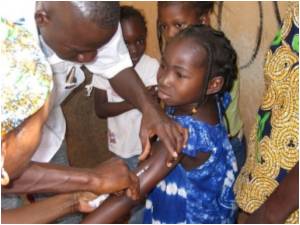Professor Jennings said, Neisseria meningitidis is an important human pathogen that can cause rapidly progressing, life threatening meningitis and meningococcal sepsis in humans.

To understand why, we need to know the detail of how the bacterium colonises the airway. Now that the pathway has been identified we can study this process to understand how invasive disease occurs. This is especially important considering the rapidly progressing and serious outcomes of meningococcal disease."If you understand how the bug first attaches and how it first signals its attachment then we may identify new risk factors or treatment procedures," Professor Jennings said.
The findings were published Friday in the highly regard PLOS Pathogens journal as featured research "Dual Pili Post-translational Modifications Synergize to Mediate Meningococcal Adherence to Platelet Activating Factor Receptor on Human Airway Cells." The paper states: There is no fully protective vaccine against this pathogen in current use and the key processes that dictate the transition from harmless carriage of the bacterium in the airway (the case for the vast majority of colonised hosts) to invasive disease are largely undefined.
A key missing link in this organism’s interaction with the human host is the identity of the receptor that is the first point of contact for the organism within the airway.Professor Jennings said the receptor is used by a range of airway pathogens and the bacterium mimics a human structure to attach to this receptor."It’s not actually protein that attaches to the receptor but decorations on the protein that are known as post-translational modifications. One of these is a sugar structure, which of course is of great interest to our work here at Glycomics," he said.The Institute of Glycomics is a world leader in the study of glycans and carbohydrates (sugars) and how they behave in terms of disease prevention and cure.
Source-Eurekalert
 MEDINDIA
MEDINDIA



 Email
Email




